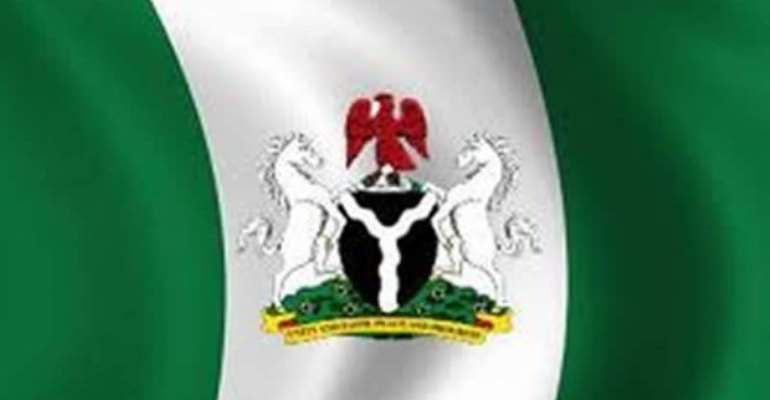An overview of FG gains in oil sector in 2013

When year 2013 began, many Nigerians never gave the Federal Government any chance of making fruitful impacts in the petroleum industry. They thought the government would come up with its usual game of increasing the pump price of the Premium Motor Spirit (PMS). The previous year, they were woken up with the removal of fuel subsidy, which, incidentally, indicated total deregulation of the downstream petroleum industry.
Unfortunately for these Nigerians, the Federal Government disappointed them. The fuel subsidy was allowed to stay, if not for any other year, but at least for throughout 2013. Agreed that was a huge burden on the government, as it took a toll on infrastructural development in other sectors of the economy, but President Goodluck Jonathan and his Minister of Petroleum Resources, Mrs. Diezani Alison-Madueke, tolerated it to avoid another labour strike and nationwide protest.
A critical look at the entire downstream sector, one will not help but commending the Federal Government on its significant impact in the sector. The first is the government's efforts to tackle the spite of pipeline vandalism, which initially hampered petroleum products distribution. Secondly, government achieved zero fuel scarcity throughout 2013.
Without any doubt, the Federal Government took a drastic measure on tight security on the entire pipeline network across the country. When Arepo pipeline was vandalised, the staff of Nigerian National Petroleum Corporation (NNPC), who went to effect the repair of the pipeline, were killed. After that, nobody had the courage to go in there to carry out any repair of the pipeline. For weeks, the vandals were having field day, siphoning the fuel and making illegal money.
The vandalised pipeline, which is known as System 2B Pipeline, transports refined petroleum products from the Atlas Cove Jetty in Lagos through to the western states up to Kwara state. For the six weeks that the pipeline was put out of usage, the Federal Government lost N3.6billion. The government devised other means to meet the fuel requirement of the affected states, which was why during that period no fuel scarcity was recorded.
Aside from that, the Federal Government awarded the contract for the repair of the pipeline to the Nigerian Army Engineering Corps. Today, the pipeline has been restored and effectively distributing petroleum products. The Nigerian Army Engineering Corps was also awarded the contract to clear the pipelines right of way across the country, while work was completed on the Atlas Cove - Mosimi - Ibadan axis and Port Harcourt - Bonny line.
Alison-Madueke also embarked on an aggressive revamp of key downstream facilities including PPMC depots and product supply pipelines, which have hitherto remained moribund. She turned around 20 out of the 23 PPMC inland storage depots spread across Nigeria. The dilapidated depots and ancillary pipelines, which were turned around, included those in Aba, Benin, Suleja, Gombe, the PPMC product evacuation and reception jetty in Okrika, among others.
She deployed horizontal directional drilling technology as a solution to pipeline vandalism, especially in flashpoint areas like Arepo and Ije-Ododo, and the approval of the Sub-sea By-pass Line project aimed at getting imported heavy crude to the Kaduna Refining and Petrochemical Company (KRPC). Some of these pipelines and depots have been abandoned for upwards of 10 years, but Alison-Madueke, with her aggressive efforts, gave marching orders to clear the pipelines right of way and fix the pipelines for efficient distribution of products across country.
When you look at the Federal Government's war against crude oil theft and pipeline vandalism in the country, you also need to commend Jonathan and Alison-Madueke. The President gave Joint Task Force every power to tackle the vandals. He is not hiding anybody and he is not ready to hide anybody. To show the seriousness of the Federal Government on this war, Jonathan, when he visited Obama, he sought for the assistance of U.S. President on illegal oil activities in Nigeria and warned other nations to stop buying stolen oil from Nigeria.
Jonathan also charged Extractive Industries Transparency Initiative (EITI), when its chairperson, Ms Clare Short, visited him, to do more to support Nigeria's efforts to stop the exportation of stolen crude oil from the country. So, his is a government that is sincerely serious to nuisance.
The Federal Government, in 2013, opened second marginal oil field licensing round, after more than 10 years that the first marginal field bid round was conducted. The bid round should deepen the participation of indigenous oil companies in the upstream sector of the oil and gas industry. It should also increase the country's exploration and production activities in the oil and gas sector.
Nigeria has a drive to increase its oil reserves from 36 billion barrels to 40 billion barrels and crude oil production to four million barrels per day, from the current 2.5 million barrels per day. The Government can only achieve these goals through bid rounds and provision of friendly environment for investors.
In the past, some progress had been made in marginal fields' development as eight out of the 24 operators have taken their fields to first oil. But after that initial effort, the Federal Government went to sleep, forgetting that it should continuously award marginal fields to encourage small and indigenous investors to participate in the industry.
Since Alison-Madueke announced it, many Nigerian investors have expressed their interest to participate in the bid round.
By Oghenekevwe Laba – a Lagos based journalist.
